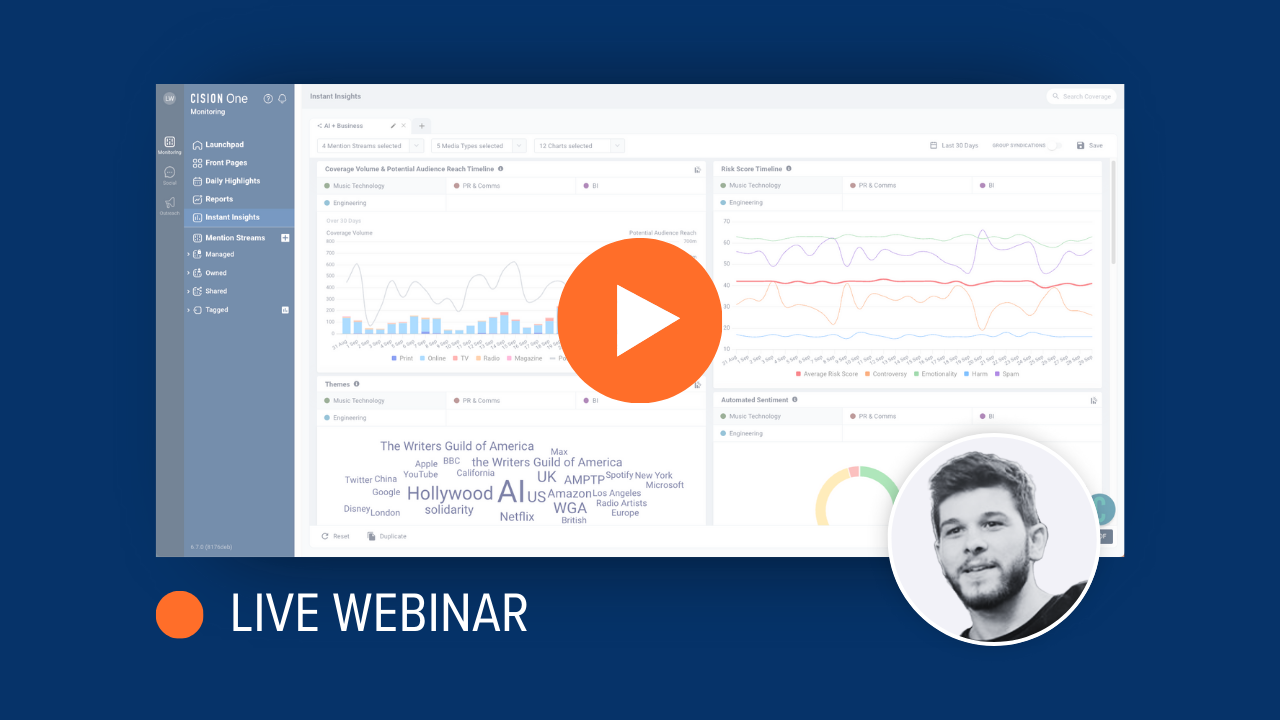
Caren Davies, senior head of communications for England at the BBC, discusses her role, why local voices are still important and gives her top piece of comms advice.
Would you be able to give us a quick overview of your role at the BBC?
I lead the department that looks after the external comms for some of the biggest departments in the BBC including regional and local TV, radio and digital services across England, sport, children’s, 5 Live, learning, BBC Breakfast and the BBC Philharmonic. We also look after public affairs activity across England and I look after the comms for the BBC’s director of nations and regions too.
How different is a BBC comms role outside London compared to those in London?
We do public affairs and public engagement work alongside our publicity work. In London a separate department does this working alongside publicity teams. We are responsible for telling the BBC’s out of London story too, which means we have to work with all the publicity teams to make the most out of content made across the country.
How important is the local voice as the world becomes more global?
Really important. We know that more than ever, people want to hear their own stories, identities and passions reflected on TV/radio/digital. You just have to look at how big Channel 4’s Derry Girls is in Northern Ireland, how well Car Share does in the north-west, how Peaky Blinders is loved in the Midlands to see that.
The regional television bulletins at 6.30pm on BBC One remain collectively the most watched news broadcasts in the UK – local stories that matter to people in their area – so again we can see the appetite for ‘local’ is there.
Does being part of a media organisation help you when it comes to dealing with the media?
The BBC is a world renowned brand and 92% of UK adults use BBC television, radio or online each week, so media organisations across all platforms are interested in our content.
At the same time the BBC is under daily scrutiny from the media so we have a lot of reactive queries to deal with. Working in comms at the BBC gives you a great set of core comms skills, being public service and the scrutiny means the front line skills you develop are second to none.
You are also chair of the Royal Television Society’s Midlands Centre. What does that involve?
It’s a voluntary role and since I took over as chair in December 2017 we now have the largest membership of all the regional centres. It’s an educational charity so we organise events in the Midlands to celebrate TV and encourage young people into the industry.
We did 18 events last year, including the first RTS Careers Fair outside of London and our annual red carpet awards, which saw Frank Skinner receive a lifetime achievement award.
What have been the big changes in comms over the past 10 years?
With the decline in newspaper circulations and the growth of social and digital, there has been huge changes. In TV and radio the changes In viewing habits has greatly impacted on TV/radio publicists too.
The traditional skills associated with publicists have changed and are continuing to evolve. Comms teams need to be able to create their own digital assets for the media, social media plays a huge part in comms roles and we constantly need to find creative ways to have direct engagement with the public.
Changes in how people consume news and information is even more pronounced in the regions where regional press has declined at a faster rate than the national press and new online services have emerged capturing large audiences which also affects the way we work.
How do you look to measure the effectiveness of your work?
Positive coverage, how many people consume the content/who consumes it/how they perceive the content/the BBC as a whole. I like my teams to try new ways of reaching people – not everything will work but we need to keep trying new things.
What would be your perfect PR story for the BBC regions?
Something that demonstrates the value of the local and regional services to the local communities across England; and the BBC’s contribution as a whole to the creative and financial economy across the country too.
Finally, what’s your best piece of PR advice?
Treat people as you wish to be treated yourself – be nice to people on the way up as you may see them again on the way down
About Alister Houghton
Alister writes about the PR and comms industry as content marketing manager at Cision. Send press releases, interview pitches, Inside the Campaign/PR case study examples and thought leadership pieces to alister.houghton@cision.com.
Learn More. Do More. demo new
PR Tips, Case Studies, and Product Updates

[On-Demand Webinar] The Next Generation of Media Intelligence: From Gorkana to CisionOne
Explore CisionOne, a revolutionary media intelligence platform, and the evolution of Gorkana. Learn key features and strategies from Luke Williams, CisionOne Product Marketing Manager. Elevate your media outreach to new heights!


